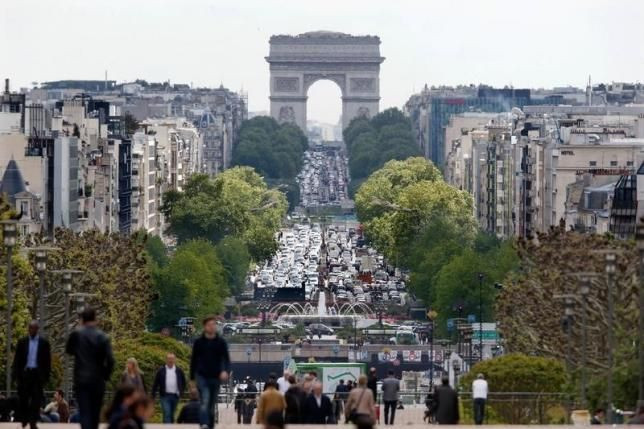France Outpaces Britain, Germany With Fastest Growth In 2 Years

Cheap oil and a weak euro lifted the French economy in the first quarter to growth of 0.6 percent, its fastest rate in two years and easily beating analysts' expectations.
The strong quarter-on-quarter data was supported by consumer spending, corporate investment, industrial output and inventories, while exports slowed.
It was the highest growth reading for the French economy since the second quarter of 2013 and was twice as high as that in Britain and Germany, which both reported a slowdown in the rate of output growth.
"The sharp acceleration in activity during the first quarter ...points to growth in 2015 being somewhat stronger than the 1.0 percent expected by the government," IHS Global Insight economist Diego Iscaro said.
"However, we still do not estimate that the recovery will be strong enough to make a significant dent into France’s high unemployment rate".
The jobless rate was 10.4 percent at the end of last year.
President Francois Hollande will be hoping the improving outlook boosts his record-low approval ratings. He has said he would not run for a second mandate in 2017 if unemployment has not dropped.
The government has forecast the economy would grow by at least 1 percent this year after eking out only 0.2 percent growth last year, a figure statistics office INSEE revised down on Wednesday from a previous 0.4 percent estimate.
It revised the 2014 debt-to-GDP rate to 95.6 percent of GDP from a previous 95.0 estimate while the 2014 public deficit was confirmed at 4.0 percent.
INSEE also revised the 2013 growth rate to 0.7 percent from 0.4 percent and the 2012 rate to 0.2 percent from 0.4 percent.
The European Commission has forecast that the French economy will grow by 1.1 percent this year and 1.7 percent in 2016.
Business investment stood at its highest level in the first quarter of this year since the second quarter of 2008. Household investment, however, contracted for the seventh straight quarter, showing that real estate remains a drag on the economy.
Supporting the improved outlook, an INSEE survey of industrial managers released last week showed they expected to increase investment 7 percent this year, the most since 2011.
Consumer confidence is at its highest in more than five years, although concerns about unemployment mean it is still below the long-term average.
The Bank of France has forecast that growth will slow to 0.3 percent in the second quarter.
© Copyright IBTimes 2024. All rights reserved.





















